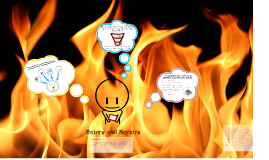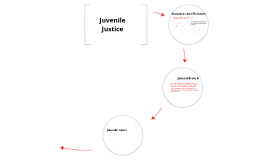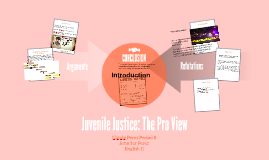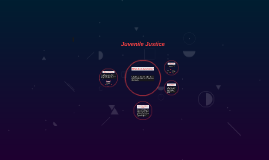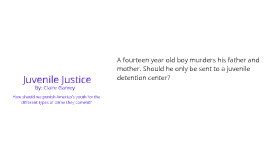Juvenile Justice
Transcript: The connection the parent's make with the child can have a major influence on the child's actions -family functioning (broken homes, mother and father figures, no essential role in the family; then they tend to stray away) -Affect the decisions they make -change their attitudes towards certain things, -behavior and habits -Teens often look for the approval from their peers -Teens are vulnerable to adapting values, good or bad, from their peers. -Depending on how important a person is to the individual, they can drastically change their out look on things - "Bless Me Ultima" - "Always Running" Nervous System -John Locke's idea of tabula rasa states that an individual's knowledge comes from their own experience and perception. - In Buddhism there is a concept known as reincarnation; it is the idea that after death a person is reborn and their actions are based on their moral quality from their past life/lives. The influence peers have on an individual can affect them directly. Poverty is always single-handedly blamed for the actions of juvenile delinquents. There is concrete evidence that backs up the idea that juvenile behavior is the result of the genetic imbalance and the social disconnection they have with their parents and peers. How a person is born and raised is a critical component that builds character, and depending on these things it can either push or pull a person into a life of crime. -The unbalanced biochemistry [caused by the release of hormones in the brain] in a teen can affect their emotions; which can make them act irrationally and impulsively. -There are things that occur in life that can trigger and emotion in child, and that alone can make them act a certain way. COMMUNICATION The genetic makeup of teens plays a significant role in adolescent behavior. Works Cited Garelik, Glenn. "Born Bad?." American Health. Nov. 1993: 66-71.SIRS Issues Researcher. Web. 30 Jan 2013. Liptak, Adam . "Supreme Court to Rule on Executing Young Killers." NY Times. The New York Times, 03 Jan 2005. Web. 24 Feb 2013. Lundstrom, Marije. "Kids are Kids- Until They Commit Crimes." Arletahigh. The Sacramento Bee, 01 Mar 2001. Web. 24 Feb 2013. Rodriguez, Luis J. Always Running. New York, NY: Touchstone, eBook. Schroeder, Ryan D., Ronald E. Bulanda, Peggy C. Giordano, and Stephen A. Cernkovich. "Parenting and Adult Criminality:An Examination of Direct and Indirect Effects of Race." Jar.Sagepub. Journal of Adolescent Research, n.d. Web. 24 Feb 2013. Smith, Carolyn A. "Juvenile Delinquency: An Introduction." Prevention Researcher Vol. 15, No. 1. Feb. 2008: 4-7. SIRS Issues Researcher. Web.30 Jan 2013. Wickliffe, Joseph A. "Why Juveniles Commit Crimes." Diss. Web. Is it NATURE vs.NURTURE? or NATURE and NURTURE? Everybody is different; from their genetic makeup to their personality. And sometimes these differences can determine whether they are "made for bad or good". Nature and Nurture TRUST Control & Temper A SENSE OF BELONGING Personality & Character In conclusion... -"Each child is born with a particular temperament [and a capacity for aggression]" - If a person can not control themselves in certain situations they can react aggressively. (anything to channel their emotions) SOCIAL SUPPORT -Beliefs and Values -People skills -Mental Stability -Mindset [mentality: a habitual or characteristic mental attitude that determines how you will interpret and respond to situations.] -Confidence and Self-Esteem - Everyone is born with an exclusive nervous system that can recall and react to situations differently. -Exposure to different experiences STRONG BONDS WITH FAMILY Puberty PROPER DISCIPLINE Research suggests that the genetic fabric people are born with and the relationships they have with their parents, and later their peers have the ability to mould teens into a life of crime.






